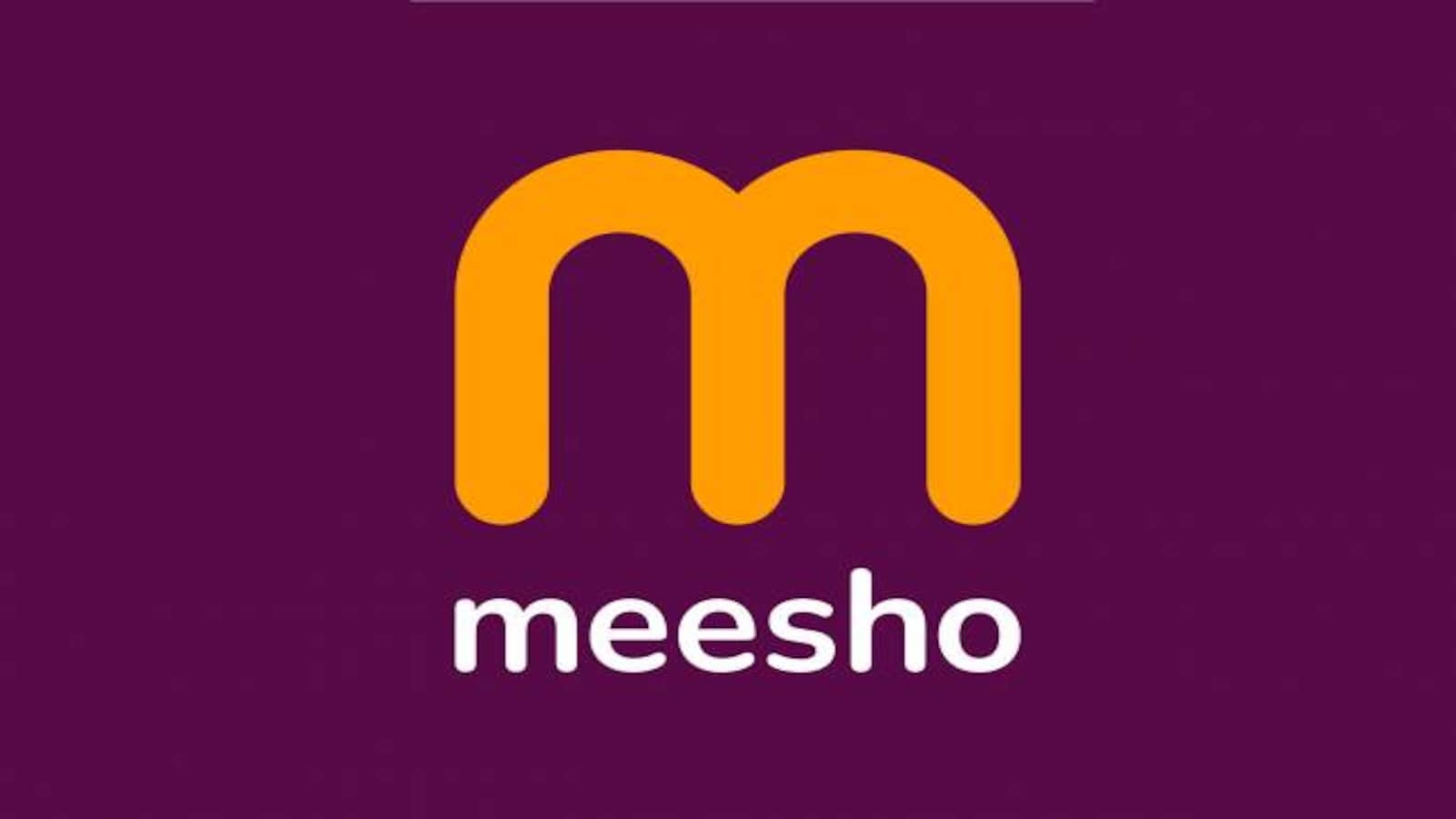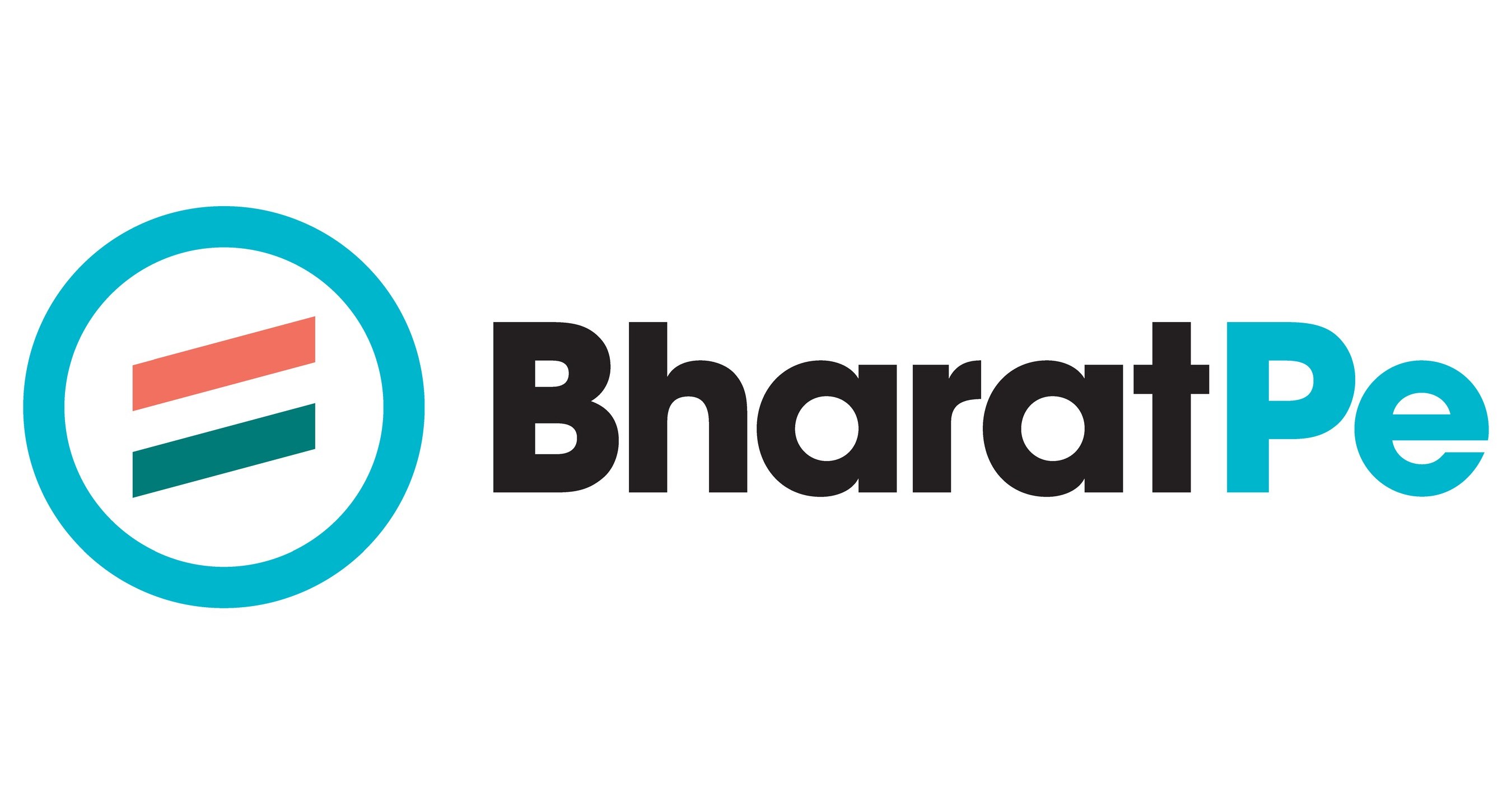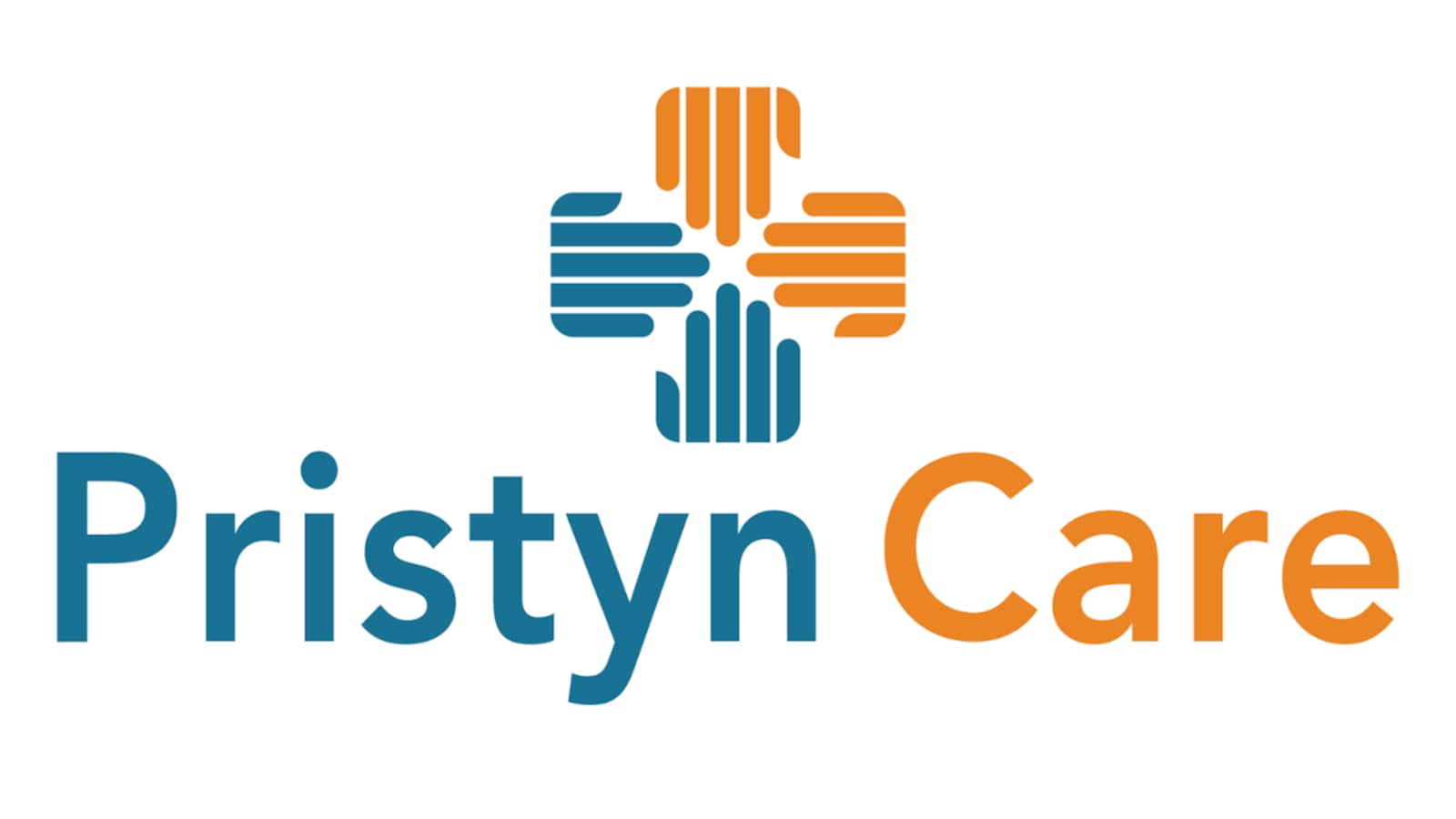Indian Startups Which Need To Be Investigated Thoroughly: Unravelling Suspicious Unicorn Ecosystem
Various Indian startups these days have highly questionable finances, valuations and commercial practises which calls for an urgent need for thorough investigation into them.

Indian Startups Which Need To Be Investigated Thoroughly: Unravelling Indian Unicorn Ecosystem
Background Of Indian Startups Under The Scanner
There have been a history of various startups which have come under the scanner of tax authorities, ED, CBI and other bodies for potential criminal activities, tax evasions and improper financial valuations. Some of the famous instances being-
FirstCry: Supam Maheshwari built the well-known unicorn FirstCry, which is now under investigation for allegedly evading $50 million in taxes. Tax authorities are looking into the situation, concentrating on FirstCry-related equity transactions. At least six other FirstCry investors are now under scrutiny, including the family office of Sunil Bharti Mittal and ChrysCapital Management Co.
FirstCry, Globalbees Brands, and Xpressbees are three Indian unicorn startups that Supam Maheshwari is credited with establishing. In especially in high-value stock transactions, the case emphasizes the significance of extensive financial audits as well as investigations to guarantee tax law compliance.
Paytm: In November 2022, Paytm, a significant player in the financial services and digital payment industries, underwent India’s largest IPO. However low market performance after the IPO as well as criticism of the exorbitant valuation caught people’s attention. Despite the dearth of any particular examining professionals, the case raises questions in the mind of general public about accurate valuation, appropriate market pricing, as well as IPO surveillance. The circumstance emphasizes how crucial effective oversight is to avoid overvaluation and safeguard investor interests.
OYO: OYO, a significant player in the hospitality sector, has run into a number of legal issues. Allegations of unethical business methods, payment arrears to hotel partners, as well as anticompetitive activities are included in these challenges. These problems are being looked into by the Economic Offences Wing (EOW) and several law enforcement organizations. By filing a complaint with the Competition Commission of India (CCI) for anticompetitive activities and cartelization, the Federation of Hotel & Restaurant Associations of India (FHRAI) has additionally taken action against OYO.
OYO and MakeMyTrip were penalized by the CCI for engaging in anti-competitive behavior. These instances highlight the significance of efficient regulatory control to guarantee honest corporate practices and competitive fairness in the sector.
Nykaa: The stock price of Nykaa, a well-known e-commerce portal for health and beauty products, dropped after its initial public offering, prompting inquiries regarding its valuation. Despite the absence of specific investigating agencies, the case emphasizes the necessity of correct appraisal as well as openness throughout the listing process. Nykaa’s stock dropped over 7% to a record low following an initial listing pop of 79%, raising concerns about valuation accuracy along with investor confidence.
Byju’s: Byju’s, a prominent edtech company, has faced a number of challenges which include ongoing lawsuits with lenders, shareholder disputes, governance lapses, and allegations of Foreign Exchange Management Act (FEMA) violations. Investigating authorities such as the Enforcement Directorate and the Serious Frauds Investigation Office (SFIO) have been involved.
The Institute of Chartered Accountants of India (ICAI) is also reviewing Byju‘s financial statements for specific fiscal years. Director resignations, including those of prominent investors, as well as audit firm resignations have added to the scrutiny. These instances highlight the necessity of robust financial reporting compliance, transparent governance, as well as accountability in the startup ecosystem.
Rahul Yadav’s Ventures: Rahul Yadav, known for founding Housing.com and 4B Network, has faced allegations related to the disappearance of a substantial INR 280 crore funding from Info Edge. The funding’s unaccounted status prompted Info Edge to initiate a forensic audit of Rahul Yadav’s pro-tech startup. Allegations of financial irregularities as well as staff salary defaults have emerged. High-ranking employees have even filed criminal cases against Yadav for failing to repay loans.
These cases underscore the significance of transparency, proper fund management, and accountability in financial dealings within startups which highlights the need for investigation into questionable startups.
Zomato: Zomato, a key competitor in the food delivery sector, has been accused of anticompetitive behavior, unfair restaurant contracts, as well as information masking. After a complaint from the National Restaurant Association of India (NRAI), the Competition Commission of India (CCI) as well as the Director General (DG) have initiated investigations.
The CCI recognized claims of delivery service bundling, data masking, and exorbitant commissions. The case underlines the need of regulatory vigilance in ensuring fair market practices and preventing discrimination against smaller enterprises. Further, the immense amount of losses Zomato has been making have also been questioned on various occasions, highlighting the lack of business acumen in the people running this startup.
The examples demonstrate the dangers which may arise when entrepreneurs engage in fraud, dishonest behavior, as well as financial mismanagement. There is a pressing requirement for strong regulatory frameworks, exhaustive due diligence procedures, open financial reporting, and efficient oversight mechanisms to reduce such risks. To make sure that they contribute to the economy, safeguard investors, and preserve fair competition in the market, startups should be regulated with strict checks and balances.

Keeping in mind all of the aforementioned examples, the following startups should be looked into for the purpose of preventing any more fraud from continuing to happen or from possibly starting to occur:
SWIGGY
Swiggy has established itself as a major player and transformed how people access their favorite dishes. However, concerns have been raised about the integrity of the company’s reported sales and losses given that the company’s losses increased by an astounding 80 percent during the 2022–23 fiscal year. It has become clearer that a full examination is required to confirm these financial records. Swiggy’s losses skyrocketed from over $300 million in FY22 to an amazing $545 million in FY23, according to the annual report published by Dutch investor Prosus on June 27, 2023. This startling spike in losses raises questions and necessitates further investigation.
A huge increase in its share of trading loss from $100 million in FY22 to $180 million in FY23, primarily attributable to its investments in Instamart, was also noted by Prosus, which holds a sizeable interest of 33 percent in Swiggy. In sharp contrast, Zomato, Swiggy’s rival, reported revenues in FY23 that came close to matching Swiggy’s gross sales. The key difference between the two, though, is in terms of their individual financial losses. Zomato reported losses of about $126 million, which were far lower than Swiggy’s soaring losses of $545 million. Is there more to Swiggy’s financials than meets the eye given this stark contrast in financial performance?

The conduct of Zomato and Swiggy raised issues and suspicions for the Competition Commission of India (CCI). The CCI confirmed that there is evidence of a “prima facie case” with regard to certain actions taken by these massive food delivery companies in an order dated April 4. The National Restaurant Association of India (NRAI) filed the lawsuit in July 2021, alleging anticompetitive practices such as service bundling, data masking, extortionate commissions, deep discounts, as well as violations of platform neutrality.
Given these facts, it is absolutely necessary to look at Swiggy’s financial records in great detail. The general public, stakeholders, as well as investors have a right to understand the full scope of the company’s financial performance. It is critical to determine if the stated losses truly reflect the business’ operating realities or if additional variables are at work which are fuelling these spiralling losses.

MEESHO
E-commerce unicorn Meesho’s recent claim that it has become profitable has surprised the industry. However, this sudden change in economic performance raises concerns about the veracity of this newfound prosperity, particularly in light of the significant losses documented in previous years. The timing and nature of the startup’s stated profitability require a deeper look and possibly even a comprehensive probe of its financial records as it gets ready for an impending IPO.
Meesho recently declared in a statement that as of July 2023, it had achieved consolidated profitability at the post-tax level. The business hailed this success as an “industry-first feat” and emphasized how quickly it was achieved, well in advance of schedule. Even though this news has caused a stir in the business world, a number of issues cause alarm and necessitate a closer examination of the company’s financial situation.
Meesho’s assertion of profitability stands in stark contrast to the company’s financial reports filed with the Ministry of Corporate Affairs. According to Moneycontrol’s analysis of these files, there is a significant discrepancy between claimed income and losses. The company’s sales increased by a factor of four in the fiscal year 2022, reaching INR 3,232 crore, while its net loss more than tripled, rising to INR 3,248 crore. This sharp rise in losses raises questions about the veracity of Meesho’s assertion of profitability.
The contradiction between Meesho’s stated financials and the company’s claim of profitability is particularly noteworthy. The startup’s financial position dramatically improved, however the net loss for FY22 was INR 3,247.8 crore, a 550% year-over-year rise. This raises important questions regarding the turnaround. Concerns about the reported profitability are exacerbated by the 300% increase in total revenue, from INR 838.6 crore in the previous fiscal year to INR 3,359.4 crore this year.
Examining the timeline of this stated profitability is also important. Meesho’s abrupt announcement of profitability could be interpreted as an effort to boost investor mood as well as increase its market valuation given that an IPO is soon to be launched. Due to this situation, experts in the field are debating whether the company’s recent success represents a true financial achievement or only a calculated effort to draw in new investors.
In light of these circumstances, there is a compelling case for authorities to initiate an investigation into Meesho’s financial records. Transparent and accurate reporting is of paramount importance in maintaining investor confidence and fostering a healthy business environment. The startup’s claim of profitability raises valid concerns about the integrity of its financial disclosures, particularly as they pertain to the impending IPO.

OLA CABS
The financial health and operational effectiveness of Ola Cabs, a major participant in the ride-hailing sector, have recently come into doubt due to the company’s massive financial losses. The need for a thorough inquiry of Ola’s financial records becomes imperative with losses more than double on an annual basis as well as a significant gap between reported sales and expenses. Ani Technologies Pvt Ltd, also known as Ola Cabs, saw a considerable widening of losses in the fiscal year 2021–2022 (FY22), totalling 3,082 crores. This situation is troubling because the losses are over double the amount from the prior year, which highlights the need for a closer look at the company’s financial trajectory.
According to data on finances obtained through business intelligence platform Tofler, Ola claimed a 49% increase in revenues for FY22, reaching 1,350 crores. However, the sharp rise in losses raises questions about the company’s overall financial performance. The increase in net losses from the prior year of 132% suggests underlying problems that demand further investigation. Ola’s financial status stands out in part because of the discrepancy between stated sales and expenses. The difference between expenses and what was reported revenues for the company’s fiscal year was substantial, coming in at 1,539 crores. This discrepancy suggests that operational as well as cost management measures may be inefficient.
The scenario is made even more difficult by the fierce competition in the ride-hailing marketplace, where businesses compete to become profitable and sustainable. Ola Cabs’ growing losses stand in stark contrast to the industry’s drive for financial stability, prompting a need for research into the issues causing this disparity.
Understanding the causes of Ola’s financial difficulties is in the best interest of investors as well as other players in the transportation services industry. Maintaining investor confidence and fostering a fair and competitive marketplace depend on clarity and transparency. A thorough study can also reveal if these losses are the consequence of internal operational issues or are influenced by outside variables.

UNACADEMY
In recent years, the edtech environment has seen a flurry of changes, with businesses scrambling to find their foothold in an ever-changing market. Unacademy, a well-known brand supported by SoftBank, is no exception to this trend. Unacademy has aroused eyebrows by declaring a newfound profitability in the middle of altering methods, cost-cutting initiatives, and a transition into offline learning. However, the company’s fast reversal from significant losses to claimed profits, particularly in light of its upcoming IPO ambitions, requires a more thorough examination of its financials.
Unacademy announced an 80.7% increase in operating revenue to Rs 719 crore during the fiscal year ending March 2022, up from Rs 398 crore in FY21. On the surface, this increase could appear great, but a closer examination of the company’s financial parameters reveals a different story. In the fiscal year that ended in March 2022, Unacademy’s EBITDA margin and ROCE saw severe declines, showing -324.46% and -81.38%, respectively.
Even more troubling is the fact that Unacademy had to spend Rs 5.15 in order to generate just one rupee in operating income per unit. The viability and sustainability of the claimed profitability are questioned by these financial criteria in a reasonable manner. The glaring discrepancy between the stated operating revenue surge and the declining financial ratios suggests that there may be problems that need closer examination. The edtech unicorn’s declaration of profitability comes at a time when the sector is experiencing difficulties, with businesses navigating change as well as attempting to achieve stability in a cutthroat environment.
Unacademy’s declared profitability coincides with when it intends to go public by 2024, adding another level of complexity to the scenario. Prior to the launch of an IPO, several businesses have used rapid financial improvements as a planned move to boost their reputation. Unacademy’s rapid transition to reported profits after posting a loss of Rs 2,848 crore in FY22—an increase in losses of 85% from the prior fiscal year—raises important concerns regarding the authenticity of this transition.
According to Unacademy’s CEO, Gaurav Munjal, the business has a healthy cash balance and is on track to record its first month of group-level EBITDA profitability. In view of the mounting losses, these allegations emphasize how urgent it is for authorities to launch a thorough inquiry of the company’s financial records and claims. In a nutshell Unacademy’s abrupt turn from significant losses to declared profitability raises serious concerns about the veracity of its financial statements. The edtech sector’s dynamics and the impending IPO ambitions call for a closer look at Unacademy’s financial situation.

UDAAN
Udaan, a B2B marketplace with headquarters in Bengaluru, has drawn notice for its impressive revenue growth, but its inability to control losses amid growing sales raises serious doubts. There is an urgent need for an examination of the company’s revenue model and business operations because the net loss of the company keeps increasing even as its revenue increases. The discrepancy between increasing revenue along with increasing losses raises concerns about the viability and effectiveness of Udaan’s business strategy.
The parent business of Udaan, Trustroot Internet Pvt. Ltd., managed to slightly reduce its net loss in the fiscal year 2020–2021 (FY21), posting a loss of $2,482 crore as opposed to $2,519 crore the year before. However, the more concerning aspect is the glaring discrepancy between the company’s substantial revenue growth and its mounting losses, as revealed by its filings with the Singapore government’s corporate affairs ministry.
During the same period, Udaan’s consolidated revenue from operations surged to ₹5,919 crore, marking a substantial increase from ₹978 crore in the previous year. Yet, the company’s total expenses more than doubled, rising to ₹8,742 crore from ₹3,675 crore in FY20. The continuation of such a trend in the following financial year raises questions about the company’s revenue model, cost structure, and overall business strategies.
These concerns were made worse in the financial year 2021–2022 (FY22), when Udaan’s net loss increased to INR 3,075.80 crore, a 1.2X rise from INR 2,503.30 crore the year before. Even though the corporation made an effort to save money by terminating contract employees at the start of the pandemic, costs increased dramatically as order volumes increased. The financial challenges the company is under are highlighted by the fact that Udaan’s staff expenditures increased during this hyper-growth phase and accounted for 10.6% of its total costs.
The company’s unit-level expenses provide a clearer picture when examined in further detail. While an increase over the Rs 3.76 paid for the same in FY20, Udaan’s expenditure of Rs 1.48 to produce a single rupee of operating revenue in FY21 hints towards potential inefficiencies as well as unsustainable business practices.
The startup’s announcement of an IPO introduces complicating factors to the current financial dynamics. Similar to other businesses, Udaan’s efforts to forecast profitability prior to the launch of an IPO require a closer look at its financial records. Growing losses and divergent revenue trends raise legitimate questions about the company’s financial viability and the accuracy of its declared profitability.
Therefore, a full examination of Udaan’s revenue model, cost structure, and overall business operations is required given the company’s persistent record of growing losses despite significant revenue growth. Concerns regarding the feasibility of the startup’s business plans are legitimately raised by its ostensibly unsustainable financial trajectory.
To preserve investor confidence and support the values of accountability, clarity and transparency are essential. A thorough inquiry can shed light on Udaan’s financial situation and answer critical queries about the business’s operations and claimed profitability, especially as its initial public offering (IPO) approaches.

BHARATPE
Formerly heralded as a promising fintech unicorn, BharatPe is now mired in a web of scandals and financial irregularities that call for a thorough inquiry. Concerns regarding the startup’s financial integrity, corporate governance, and operating procedures have been raised in light of recent allegations of financial irregularities, a sizable loss, and a change in its leadership.
The operations of BharatPe have been called into question by a preliminary report from the multinational consulting firm Alvarez and Marsal (A&M), which was hired to investigate claims of financial wrongdoing made by co-founder and managing director Ashneer Grover and his wife Madhuri Jain Grover. The audit discovered financial irregularities, implying that the corporation was paying many ‘consultants’ for people acquired through them. These facts depict a picture of questionable organizational procedures, casting doubt on the startup’s financial as well as operational transparency.
According to the investigation, employees acknowledged joining dates that corresponded to vendor bills while being uninformed of any recruitment through these ‘consultants.’ The involvement of Madhuri Jain Grover, who received as well as transmitted invoices from merchants, several of which originated with her brother, Shwetank Jain, is of particular concern. Fonts, email addresses, and even physical addresses were shared by these invoices. The investigation also highlighted the clustering of bills from vendors associated to Madhuri Grover’s birthplace of Panipat.
Following these revelations, BharatPe’s board requested Alvarez & Marsal to conduct an independent audit of the organization’s internal systems and processes. Ashneer Grover denied the charges and asserted that he was under pressure to leave the company, which caused the situation to intensify. A stunning loss of Rs 5,594 crore was announced amid the upheaval, and CEO Suhail Sameer resigned. High-profile executives’ unexpected departure added to worries about the health of the firm.
The unexpected loss necessitates a closer study of BharatPe’s financials as well as corporate governance standards, especially in light of the ongoing controversy and leadership changes. Despite the company reporting a 169 percent growth in revenue to Rs 321 crore in FY22 from Rs 119 crore the year before, the loss increased by an astonishing 89 percent to Rs 5,594 crore. Such financial inconsistencies give rise to legitimate questions about the startup’s capacity to effectively manage its funds.
It is essential for authorities to launch an inquiry into BharatPe’s financial records, operations, and corporate governance in the face of ambiguity. Transparency, accountability, and a dedication to resolving issues within the business are warranted given the startup’s turbulent journey, which was characterized by financial inconsistencies as well as leadership conflict.

DREAM 11
Dream11 is a well-known unicorn in the fantasy gaming industry, having attracted millions of players with its unique strategy for participating in virtual sports. Recent financial changes within the corporation, though, have prompted concerns about the genuine source of its profitability as well as its approach to investing. The need for a thorough inquiry into Dream11’s finances and operations becomes clear given the company’s sharp decrease in net profit and ambitious investment plans in spite of industry-wide profitability issues.
Dream11’s net profit fell dramatically in the fiscal year 2021–2022 (FY22), falling from INR 327.1 Cr in FY21 to INR 141.97 Cr, a 56.59% decrease. This decline occurred despite operating revenue growing by a notable 1.5X year over year, from INR 2,554.3 Cr in FY21 to INR 3,840.7 Cr in FY22. The business’s reliance on the provision of services to bring in money underlines its importance to the sector.
It is interesting to note that the decline in net profit was accompanied by a large increase in expenses. In contrast to the rise in miscellaneous expenses, which increased to INR 1,050.4 Cr from INR 648.01 Cr in FY21, depreciation, depletion, and amortization costs increased by about 34% YoY to INR 40.33 Cr. The sudden surge in these costs has sparked concern and increased investigation into the company’s financial situation.
Interestingly, Dream11’s venture capital and acquisition arm, Dream Capital, revealed plans to invest a stunning $1 Mn-$100 Mn in sports, gaming, as well as fitness-tech firms despite a significant fall in net profit and rising costs. Given the current economic climate and the difficulties other industry participants are experiencing, this aggressive investment approach is significant.
Dream11 competes against gaming unicorns like Mobile Premier League (MPL) and Games24X7 among others in a cutthroat market. Surprisingly, Dream11 is the only profitable unicorn out of the entire group. Previously a profitable peer, Games24X7 reported a loss of INR 230 Cr in FY22 after making INR 110 Cr in profit the year before. Similar to this, MPL saw a threefold increase in losses, which totaled $149.3 Mn in FY22.
A closer look at Dream11’s profit margins and investment strategy is necessary in light of these different financial trajectories among market participants. The capacity of Dream11 to remain profitable despite rising costs begs significant issues as other businesses struggle to achieve profitability. Can the company’s reported profits really reflect its current financial situation, or could there be other factors at work? The disconnect between Dream11’s declared profits as well as its expenditures requires serious study, especially given the industry’s wider struggles with profitability.

SNAPDEAL
Due to its puzzling financial trajectory, Snapdeal, a significant player in the Indian e-commerce market, is once again the subject of inquiry. A significant increase in net losses revealed by the business, helmed by Kunal Bahl, raises concerns about its financial management and decision-making. A additional layer of complexity has been added by the recent assertion that the company’s FY23 losses will be reduced by an astounding 93–94%, especially in light of its scrapped IPO preparations. A thorough inquiry into Snapdeal’s finances, openness, and operational procedures is necessary in light of these occurrences.
Snapdeal’s net losses sharply increased in the financial year 2021–2022 (FY22), more than doubling to INR 510.3 crore from INR 125.4 crore in FY21. This sharp surge in losses, despite moderate revenue growth, has baffled investors and industry experts. While the startup’s overall revenue increased by 10.5% to INR 563.5 crore in FY22 from INR 510 crore the previous year, revenue from operations only increased by 14% to INR 539.5 crore from INR 471.7 crore.
The gap between sales growth and rising losses raises legitimate questions about Snapdeal’s financial management, spending control, as well as overall business strategy. The abrupt and significant increase in net losses during a period of revenue growth is a red flag that requires a closer look at the startup’s financial operations.
Snapdeal’s recent claim of decreasing FY23 losses by 93-94% year on year adds to the doubt. When examined in the context of the company’s cancelled IPO preparations, this significant drop raises concerns about the veracity of the reported data. The startup’s decision to delay its IPO reflects an effort to improve its financial picture and market valuation. In such cases, a thorough inquiry is required to ensure accountability as well as transparency.
Investors, stakeholders, along with the startup community at large are all interested in learning more about Snapdeal’s true financial health. Clear and accurate reporting is critical for maintaining investor trust and upholding market ideals of transparency and integrity.

CoinDCX
Crypto exchange CoinDCX, once considered a beacon of the burgeoning Indian cryptocurrency ecosystem, now finds itself facing scrutiny due to concerning financial irregularities. The startup, operating under the India entity Neblio Technologies, reported an alarming reversal of fortunes in the financial year 2021-22 (FY22), with a sharp decline in profitability and a significant surge in advertising expenses. These developments demand a closer examination of CoinDCX’s financial records and operations to ensure transparency, compliance, and financial integrity.
In FY22, CoinDCX slipped into the red, reporting a net loss of INR 41.34 crore, a stark contrast to the INR 4.36 crore net profit recorded in FY21. The startup’s financial management as well as compliance procedures have drawn criticism from the cryptocurrency community and regulators as a result of the abrupt increase in losses. While CoinDCX’s operating revenue amazingly increased by over 12.5 times year over year to INR 588.5 crore in FY22, the exponential rise in advertising costs is more worrisome. The expense of advertising skyrocketed from INR 1.8 crore in FY21 to INR 323.5 crore. Further investigation is necessary since such a sharp spike in advertising costs raises concerns about the startup’s financial responsibility and spending restraint.
The Directorate of Enforcement (ED), an anti-money laundering division of the Indian government, has requested specific information and documentation from cryptocurrency exchanges, including CoinDCX, adding to the scrutiny. This development is a result of an ongoing investigation into potential fraud by cryptocurrency exchanges in the foreign exchange market. The Income Tax Department and the Narcotics Control Bureau have both started looking into cryptocurrency exchanges, bringing attention to the regulatory and compliance issues the sector is experiencing.
A thorough inquiry into CoinDCX’s financial records, operational procedures, and adherence to regulatory standards is strongly recommended in light of recent occurrences. The startup’s financial openness and compliance with financial standards are in question given the abrupt turn from profitability to large losses and the increase in advertising costs.

PRISTYN CARE
With its reasonable pricing and alluring discounts, healthcare startup Pristyn Care has been creating waves in the market by providing elective operations. The need for a thorough inquiry of the company’s finances and operations is highlighted by recent developments that cause grave concerns about the company’s priorities and practices.
The business, which was co-founded by a doctor couple, Vaibhav Kapoor and Garima Sawhney, and a former Urban Company executive, Harsimarbir Singh, works with hospitals to rent out equipment like operating rooms. In order to convert internet search queries into consultations and operations across a range of disciplines, including gynecology, ENT, urology, orthopedics, dentistry, and more, Pristyn Care uses digital marketing as well as a sizable sales team.
With $177 million raised across five fundraising rounds, the company describes itself as a venture capital-funded startup with high growth plans. The most recent valuation of the company was $1.4 billion in December 2021.
Although Pristyn Care’s business strategy may have attracted notice, substantial concerns have been raised about its financial situation and operating procedures. According to MCA filings, the business anticipates revenue reaching 1,200 crore for FY2023–24, a considerable increase from its stated operational revenue of 96 crore in FY21. Concerns have been raised concerning the company’s strategy for improving its financial performance as a result of the company’s rapid growth and revenue prediction.
The dubious business practices of Pristyn Care are made clear by its unrelenting pursuit of profits, frequently at the expense of patient safety. According to reports, sales executives are under pressure to meet revenue goals, which can sometimes push patients toward procedures that may not be necessary or in their best interests. There have been cases where patients who preferred non-surgical options were continuously encouraged to undergo procedures instead.
In one instance, a couple seeking a medical abortion ran upon a Pristyn Care doctor who recommended surgery despite the couple’s choice for a non-surgical method. As a result, the pair decided to go with a larger hospital network that provided a more appropriate and affordable alternative. Another concerning instance included a patient who underwent hemorrhoid surgery at Pristyn Care but suffered from problems after the procedure. Following meetings with other medical professionals, it was discovered that the previous procedure had gone wrong, causing greater suffering and necessitating a second procedure that would cost more money.
Additionally, Pristyn Care’s focus on the ratio of outpatient to inpatient conversion rates raises questions about its business methods. According to reports, doctors with higher conversion rates are given preference, which can encourage excessive procedures and jeopardize patient welfare. While others contend that needless procedures may also occur in conventional hospitals, Pristyn Care takes an institutionalized approach to these activities. The startup’s emphasis on maximizing income has the potential to result in over-medicalization and pointless treatments, which would be detrimental to patient care.
Moreover, there are concerns about the openness of Pristyn Care’s financial records and processes due to late financial filings and a significant staff turnover in the finance division. Therefore, a thorough examination into Pristyn Care’s finances, operations, and compliance with ethical and medical norms is necessary in light of the company’s unrelenting pursuit of profit at the potential expense of patient well-being.
The startup’s quick expansion and disclosed financial predictions, along with worries about its sales-driven strategy, highlight the need for accountability and transparency in its operations. Authorities should initiate an investigation to ensure that patient welfare remains paramount in the healthcare sector and that startups like Pristyn Care uphold the highest standards of care and ethics.

MAMAEARTH
Mamaearth, a well-known personal care and beauty business, filed its Draft Red Herring Prospectus (DRHP) in early 2023, with plans to reach the stock markets via an initial public offering (IPO). While the company’s growth has been impressive, the extraordinary valuation spike it has witnessed in a short period has raised concerns that necessitate an in-depth inquiry of its financials and market practices.
The DRHP discloses Mamaearth’s intention to raise Rs 400 crore through a new share issue, as well as an offer for sale (OFS) of roughly 4.7 crore shares. Mamaearth, backed by Sequoia and Sofina, was reportedly valued at a stunning $3 billion, or nearly Rs 24,000 crore, according to a Reuters article in June, even though neither the company nor its book running lead managers have formally verified its current valuation. With a price-to-earnings (PE) ratio of 1,714.28 times based on a net profit of Rs 14 crore in FY22, such a valuation would place Mamaearth among the most highly valued companies.
The crucial question is how a company can more than double its valuation from $1.2 billion to $3 billion in less than a year, especially given that the most recent investment round was in January 2022. Concerns regarding the factors causing this spike and whether they are sustainable are raised by the valuations’ quick growth.
The fact that Mamaearth became profitable in FY22, declaring a net profit of Rs 14 crore, as opposed to enormous losses of Rs 1,332 crore in FY21 and Rs 428 crore in FY20, is one remarkable milestone. While its revenue increased eight-fold between FY20 and FY22 to reach Rs 110 crore, it is important to consider if such exponential growth can be sustained, especially when operating from a larger revenue base.
Market analyst Jasani points out that while the beauty and personal care (BPC) products sector is predicted to grow by 12 percent from 2021 to 2026 and by 28 percent online, it may not be reasonable to expect continued exponential growth in light of Mamaearth’s high valuation. Mamaearth revealed a net profit of Rs 3.67 crore for the first half of FY23, highlighting its shift towards profitability. However, the remarkable valuation spike in such a short period of time continues to draw attention as well as necessitates a thorough analysis.
Hence, there are legitimate concerns regarding the viability along with integrity of these data given Mamaearth’s unprecedented valuation increase from $1.2 billion to $3 billion in less than a year. It is crucial that authorities launch an inquiry into Mamaearth’s financial records, valuation processes, and compliance with market regulations in order to ensure market integrity and investor confidence. To maintain the integrity of the IPO process and safeguard the interests of investors and the larger market, accountability as well as transparency are essential.

BLINKIT
When Blinkit, then known as Grofers, changed its name and entered the crowded 10-minute grocery delivery market, it garnered media attention. Blinkit, however, found itself in a vulnerable situation as the reality of unit economics set in and financial demands increased. The unfortunate turn of events resulted in Zomato purchasing Blinkit in an all-stock deal for $568 million, representing a substantial 43% haircut to its worth. Undoubtedly, Blinkit’s static revenue and growing losses were a factor in this development, highlighting the urgent need for a thorough inquiry of the startup’s financial situation and operating procedures.
The gross merchandise value (GMV) of Blinkit had a worrying fall, according to Sefrog International’s annual financial statement in Singapore, which was the owner and operator of Blinkit until the fiscal year ending March 2022. Its GMV decreased by 4% to Rs 2,616 crore in FY22, but losses increased significantly to Rs 1,440 crore, or 2.58 times their prior level.
Revenue from the sale of items was Blinkit’s main source of income, accounting for 88.83% of all collections. However, its revenue fell significantly in FY22, falling 5.7% to Rs 2,324 crore. It is significant to note that Blinkit ran on an inventory-led model in FY22, with the beginnings of its rapid commerce operation occurring in December 2021. It is anticipated that the financials for FY23 will give a clearer picture of Blinkit’s performance in the fast commerce market.
With its return on capital employed (ROCE) as well as EBITDA margin declining to -473.45% and -48.16%, respectively, in the most recent fiscal year, Blinkit’s financial figures showed a bleak image. During the same period, the company spent Rs 1.56 to generate just one unit of operating revenue. Even though Blinkit’s survival is no longer a risk once it is a part of Zomato, the viability of its company is still a critical matter. A fundamental restructuring is required due to the enormous challenge posed by high procurement costs relative to selling prices. Although subject to reduction, the company’s staff and human costs might not be enough to get it any closer to breakeven.
It will be difficult to engineer a turnaround at Blinkit without compromising growth; the situation there has long been an issue. Zomato must overcome the difficult task of persuading investors that the value recognized in the acquisition is supported by concrete outcomes because Blinkit’s losses will no longer be reported separately in the financial reports. To protect investor interests and promote openness in the startup ecosystem, a thorough study is needed to determine the viability of Blinkit’s operations, its capacity to reduce costs, and its potential to grow into a profitable business.
A thorough inquiry into Blinkit’s financial records and operational procedures is urgently required in light of its turbulent history and acquisition by Zomato. Rebuilding investor confidence and preserving the integrity of the market will depend on the startup operating transparently and in accordance with market laws.
It is becoming more and more clear that a thorough examination of the finances and activities of businesses is not only warranted but absolutely necessary in light of the alarming findings concerning some well-known Indian startups. The startup ecosystem, which was previously heralded as the sign of innovation and expansion, now urgently needs to be scrutinized and held accountable. Growing worries about valuation inconsistencies, falsified financial documents, and putting profits above conscience generate serious issues about these companies’ trustworthiness.
Investigations of these firms aim to safeguard not only the interests of investors but also the standing of the Indian startup scene. It is crucial to make sure companies uphold moral principles, keep financial transactions open, and put the interests of customers first. India’s startup scene’s future depends on its capacity to handle these issues head-on, encouraging accountability and moral behavior. The only way for these startups to rebuild the confidence that has been lost and open the door for a stronger, more dependable startup environment is through strict oversight and corrective measures.





